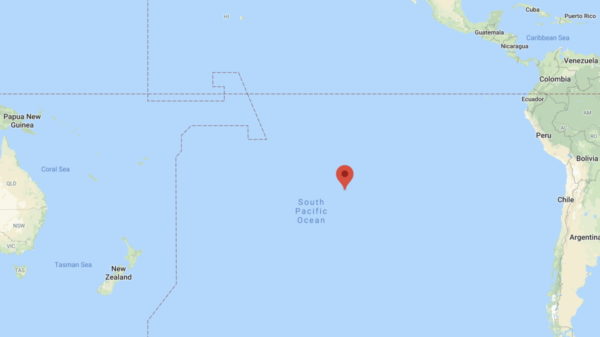Nomadism has always been an important part of American culture, from yesterday’s train hoppers, hobos and migrant workers to today’s digital nomads and remote workers. Unfortunately, US tax law has never been friendly to this demographic and can often be a complicated mess to navigate. In this article, I explain how the US taxation system works in the context of location independence and answer frequently asked questions.
Overview
The United States is a large country and the world’s most advanced economy. It also is the world’s most creative country. So much so that there is a fair chance that most of what you see around you was either invented or significantly improved by the Americans. One American invention that most wished had never seen the light of day, however, is the citizenship model of taxation. The way it works is simple, if you are a US citizen you are liable for US taxation regardless of your circumstances. It is possible to tax-optimize, to avoid US taxation completely even but it is unfortunately impossible to eliminate the burden of compliance itself. Federal income rates are progressive and go up to 39.6%. State income rates are also progressive and go up to 13.3% (CA). Some municipalities also impose an income tax, New York City being an infamous example. On top of regular income tax, other taxes may also be imposed depending on your circumstances. The Alternative Minimum Tax (AMT) and the Self-Employment Tax (Social Security and Medicare Taxes) being the most common. Long-term capital gains are generally taxed at the rate of 20% while short-term capital gains are taxed as ordinary income. Many tax credits and deductions exist, especially for low-income earners. There is an inheritance tax in the US but only on amounts over several millions USD. While there is no wealth tax, there is a 3.8% tax on net investment income over ~ 125000 USD. Compliance-wise, the tax year is the calendar year and all individual tax returns must be filed before mid-April. All taxpayers must disclose their foreign financial assets (including bank accounts) or face a 10000 USD penalty per offense + a 40% penalty on an understatement of tax attributable to nondisclosed assets.
A word of warning
It is important to understand that complying with US tax law is not only a good idea, it is absolutely essential. Partly to ensure that you can always return home without worries and partly because the US government can revoke your passport if your tax delinquency reaches 50000 USD. Having your passport revoked could leave you stranded in a foreign country (although to be fair, the risk is fairly low for regular tax offenders).
Ensuring compliance, step-by-step
1. You must file an annual tax return, the same way as if you still lived in the US. Please note that you may qualify for a two months automatic extension as a foreign resident. If unable to meet the filing deadline, you can request an additional extension to mid-October using IRS form 4868.
2. If you have any financial accounts outside the United States and the aggregated value of said financial accounts exceeded 10000 USD at any time during the tax year, you must file an FBAR. Depending on the value of your foreign assets and your personal circumstances, you may also need to file IRS form 8938. Make sure to comply with this step as the IRS will know about your foreign accounts, nearly every country has now implemented FATCA reporting.
3. Depending on your personal situation and how you generate your income, you may be eligible to claim either the Foreign Tax Credit or the Foreign Earned Income Exclusion. The FTC is usually preferable if you live in a high-tax country where your tax burden will likely be higher than it would be in the US. It also allows parents to claim the Child Tax Credit (not possible if claiming FEIE, see the Trade Preferences Extension Act of 2015). The FEIE is preferable if you are either employed or self-employed and your total income is lower than the maximum amount allowed (102100 USD in 2017). It is important, however, to understand that the FEIE comes with multiple requirements and some fairly severe limitations. To qualify, you must either spend 330 days outside the US during any consecutive twelve months period or prove that you are a domiciled resident of a foreign country. As for the limitations, the FEIE only applies to EARNED income. It does not apply to dividends, capital gains and other types of income. If self-employed, you will need to pay the self-employment tax even if claiming FEIE. On a more positive note, you can claim the Foreign Housing Exclusion or Deduction if claiming the FEIE.
4. It is important to keep your books in order at all times. This will help in case you are audited by the IRS. Also, when in doubt, do not hesitate to seek help from a qualified tax attorney. It is always preferable to pay for expert help than to be audited and potentially fined for non-compliance not to mention the stress of the audit itself.
F.A.Q.
Question 1: Which rates should I use when converting foreign currency amounts into USD?
Answer 1: In most cases, end-of-fiscal-year rates. You can find them on the US Treasury website.
Question 2: Should I renounce my US citizenship to avoid paying US taxes?
Answer 2: No, not in my opinion. Complying with US tax law certainly is a major hassle but the pros of being a US citizen more than outweigh the cons.
Question 3: Is there a legal way around FBAR?
Answer 3: Absolutely. Keep all your financial accounts in the US.
Question 4: I have not filed a return in many years, am I in trouble?
Answer 4: The answer depends on multiple factors but generally the IRS is fairly cooperative when foreign-domiciled US citizens come forward seeking compliance (especially those that have never lived in the US). Penalties may be due but it is unlikely that you will end up being prosecuted. In any cases, contact a qualified tax attorney BEFORE getting in touch with the IRS.
Question 5: I have been asked to fill a W9 form, how should I complete the form?
Answer 5: I have written a guide detailing how to fill a W9 form as a US citizen / permanent resident. You can read it here.


































